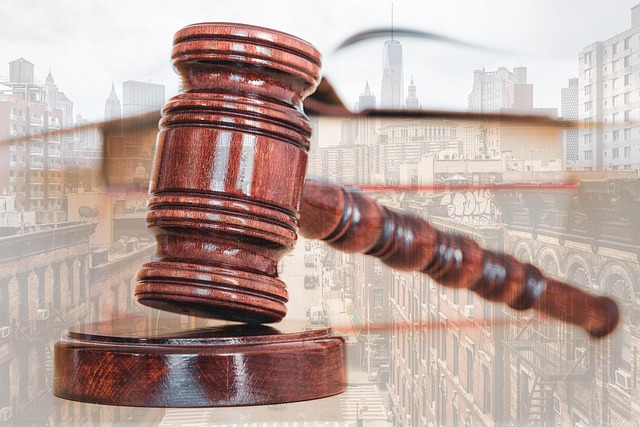The financial sector has undergone significant regulatory reforms, driven by global crises and public demands for accountability. The "Recent Changes in Financial Regulation Law" have introduced stricter oversight, enhanced data privacy protections, anti-money laundering protocols, and fair lending practices. These changes require financial institutions to strengthen compliance measures, foster ethical conduct, and adapt operational models. Non-compliance carries severe penalties, impacting sustainability and public trust. Proactive strategies include robust internal controls, employee training, ethical culture promotion, and engaging white-collar defense teams to navigate complex legal frameworks successfully.
In today’s dynamic financial landscape, staying abreast of regulatory compliance issues is paramount for businesses and institutions. The evolving nature of financial regulation, marked by recent law reforms, necessitates a strategic approach to navigate these challenges effectively. This article delves into the key changes in recent financial regulation laws, explores their profound implications, and offers valuable strategies to ensure robust compliance. Understanding these shifts is crucial for thriving in the ever-changing regulatory environment.
- Understanding the Evolving Landscape of Financial Regulation
- Key Changes in Recent Financial Law Reforms
- Implications for Businesses and Financial Institutions
- Strategies to Navigate Regulatory Compliance Issues Effectively
Understanding the Evolving Landscape of Financial Regulation
The financial regulatory landscape has undergone significant transformations in recent years, driven by a series of global economic crises and evolving public expectations. These changes reflect an increased scrutiny of financial institutions and markets to ensure stability, mitigate risks, and protect investors. The recent shifts in Financial Regulation Law have been particularly notable, with a focus on strengthening oversight and promoting ethical conduct across the industry.
Navigating this evolving environment requires a comprehensive understanding of new rules and guidelines that impact various aspects of financial operations. From anti-money laundering regulations to data privacy standards, all stages of the investigative and enforcement process have become more stringent. This has prompted financial institutions to invest in robust compliance frameworks, including enhanced due diligence, strict internal controls, and proactive risk management strategies. Moreover, the dynamic nature of these regulations necessitates continuous monitoring and adaptation within the philanthropic and political communities to address emerging challenges in white-collar defense.
Key Changes in Recent Financial Law Reforms
In recent years, the financial sector has witnessed a wave of regulatory reforms aimed at enhancing transparency, accountability, and consumer protection. These reforms have brought about significant changes in the way financial institutions operate, with an emphasis on stricter compliance standards and enhanced oversight. Among the key areas of focus are enhanced data privacy regulations, such as the implementation of robust cybersecurity measures to protect customer information, and strengthened anti-money laundering (AML) protocols, including more stringent Know Your Customer (KYC) procedures.
Another notable trend is the increasing emphasis on fair lending practices, with regulatory bodies closely scrutinizing financial institutions for any discriminatory lending behaviors. Additionally, there has been a push for greater diversity and inclusivity in boardrooms and executive suites, reflecting a broader societal shift towards equitable representation. These reforms not only impact day-to-day operations but also present challenges, particularly in the area of litigation. For instance, the rise of jury trials for financial misconduct cases has led to intense legal battles, with several winning challenging defense verdicts. In some instances, these efforts have even resulted in complete dismissal of all charges, underscoring the evolving nature of regulatory compliance issues in the financial sector.
Implications for Businesses and Financial Institutions
The recent changes in financial regulation law have brought about significant implications for businesses and financial institutions across the country. These new rules, designed to enhance transparency, mitigate risks, and protect consumers, demand a thorough re-evaluation of existing internal processes and procedures. For financial institutions, adhering to these stringent regulations is not merely a legal requirement but also a crucial strategy for maintaining public trust and ensuring long-term sustainability.
The impact extends beyond compliance; it influences operational models, risk management strategies, and even the way institutions interact with their philanthropic and political communities. Businesses are no longer operating in a regulatory vacuum; instead, they must actively embrace these changes to avoid penalties, including complete dismissal of all charges. This shift necessitates a culture of continuous learning and adaptation, where staying informed about evolving legislation becomes paramount for survival and success in today’s dynamic market.
Strategies to Navigate Regulatory Compliance Issues Effectively
Navigating regulatory compliance issues effectively requires a proactive approach, especially considering the recent changes in financial regulation law. Businesses must stay agile and informed to keep pace with evolving legal landscapes. One key strategy is to implement robust internal controls and risk management systems. This includes regularly reviewing and updating policies to align with new regulations, ensuring comprehensive employee training on compliance matters, and establishing clear communication channels for reporting any potential issues.
Additionally, fostering a strong culture of ethics and integrity within the organization acts as a powerful defense against regulatory non-compliance. A dedicated white collar defense team can provide valuable guidance in understanding complex legal frameworks, including those related to white collar and economic crimes. Their unprecedented track record in successfully guiding companies through compliance challenges is invaluable in ensuring business sustainability and reputation management.
The recent changes in financial regulation law have significantly shifted the compliance landscape, demanding a proactive approach from businesses and institutions. Staying informed about these evolving regulations is crucial for effective navigation through the complex web of requirements. By understanding key changes, recognizing implications, and adopting strategic solutions, entities can ensure robust regulatory compliance, foster trust, and maintain their competitive edge in an ever-changing financial environment. This requires continuous learning, adaptation, and a commitment to staying ahead of the curve.






